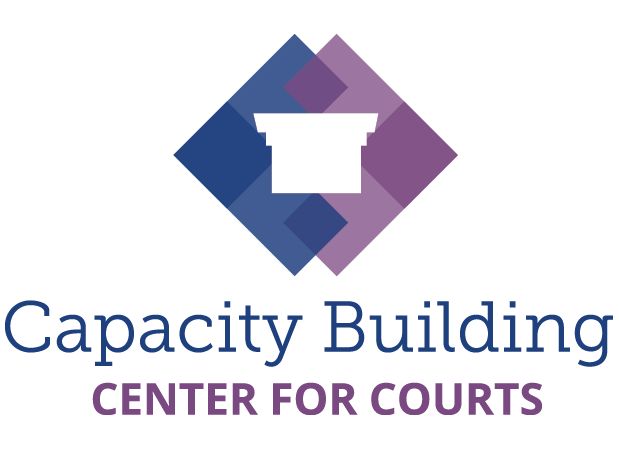Developed by the National Council of Juvenile and Family Court Judges – Capacity Building Center for Judges
Introduction
In 2021, the Children’s Bureau funded the Capacity Building Center for Courts (CBCC) to develop a set of child welfare court, judicial, and attorney performance measures to help the field understand and improve child welfare court practice. Called the Judicial, Court, and Attorney Measures of Performance (JCAMP), this project included the following key activities:
- Establishment of an Expert Advisor Pool composed of individuals with expertise in highquality legal representation, judicial decision-making, child welfare hearing quality, child welfare agency practice, tribal courts, tribal IV-E funding, equity, the Indian Child Welfare Act, safety decision-making, youth and family engagement, and both youths and parents with lived experience within the system to inform all steps of the project
- Development of a comprehensive review of existing court measures, research, and best practices (see Measuring Child Welfare Court Performance: Review of Resources, 2022)
- Development and field testing of a set of performance measures for child welfare courts, judges, and attorneys
This volume describes the methods used to develop and refine the measures, provides theories of change for how each measure relates to outcomes for children and families, and summarizes supporting research evidence. For a complete discussion of the literature and best-practice recommendations for these topics, see Measuring Child Welfare Court Performance: Review of Resources, 2022. The other JCAMP Volumes in this series include the following:
- Volume I: Measures describes the JCAMP performance measures in five topical categories.
- Volume II: Implementation Guide provides guidance for effectively implementing the measures and using the data.
- Volume III: Implementation Toolbox is a compilation of tools for each implementation step described in Volume II, including sample data collection instruments.
- Volume IV: Technical Guide provides detailed instruction on calculating each measure using different data collection methods.
Methods
The JCAMP measures were developed through a rapid prototyping process that drew on the expertise of a multidisciplinary team to integrate available feedback and resources into a structured working prototype. The multidisciplinary team was composed of researchers, court administrators, judges, attorneys, child welfare agency practitioners, representatives of tribal courts, and parents and youths with lived experience who met weekly to discuss the audience for the measures, ideas, priorities and structure for measures, and capacities for measurement. They also discussed findings from the comprehensive Resource Review (Summers, Gatowski, Richards & Fromknecht, 2022). All team members provided insight and recommendations around guiding principles, potential measures, and structure. Core team members integrated this information into a working prototype that the team reviewed and refined based on multiple rounds of feedback from these groups:
- The JCAMP Expert Advisor Pool
- Court Improvement Program (CIP) administrators and staff
- Children’s Bureau Partners
In addition to the Resource Review, several key performance measures documents inform thinking about the JCAMP measures:
- The Toolkit for Court Performance Measures in Child Abuse and Neglect Cases (The Toolkit). This U.S. Department of Justice, Office of Juvenile Justice and Delinquency Prevention series of documents recommends 30 court performance measures for child welfare courts in the areas of safety, due process, timeliness, and permanency. These measures are used in the field of child welfare court practice, and specific toolkit measures are referenced when they relate to the JCAMP measures.
- Child and Family Services Reviews (CFSR). The CFSR process is a critical review of child welfare practice that all states undergo approximately every 5 years. CFSR tools focus heavily on child welfare agency practice in the areas of safety, permanency, and well-being for children and families. These measures are considered complementary to JCAMP and are noted in specific proposed measures to consider as part of an enhanced understanding of systemic performance in an area.
- Family Justice Initiative (FJI) Attributes of High-Quality Legal Representation. The FJI identified individual and system attributes of high-quality legal representation for parents and children in child welfare cases. FJI attributes and associated indicators helped to inform the development of the high-quality legal representation measures included in JCAMP.
- National Center for State Courts (NCSC) CourTools. The NCSC developed performance measures for trial and appellate courts. Although not specifically designed for child welfare courts, CourTools measures (e.g., access and fairness, experience of the court system) were considered in the JCAMP measures.
- NCSC Well-Being Measures (Well-Being Measures). The NCSC has proposed general and education-specific well-being measures for child welfare cases. These types of measures would be ideal in exploring practices related to specific well-being goals for children and families. Because these have already been suggested, they are not duplicated within the JCAMP measures.

